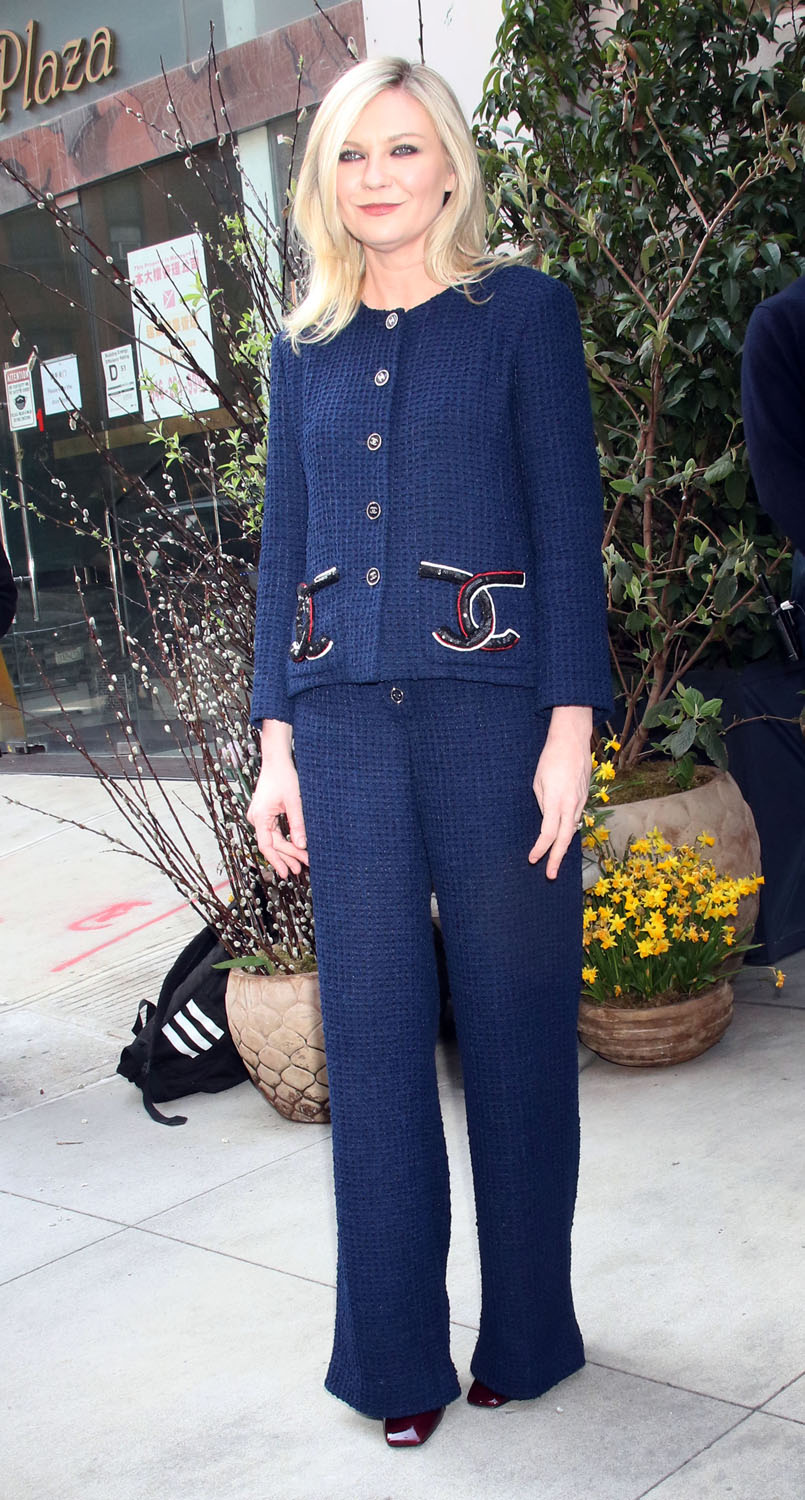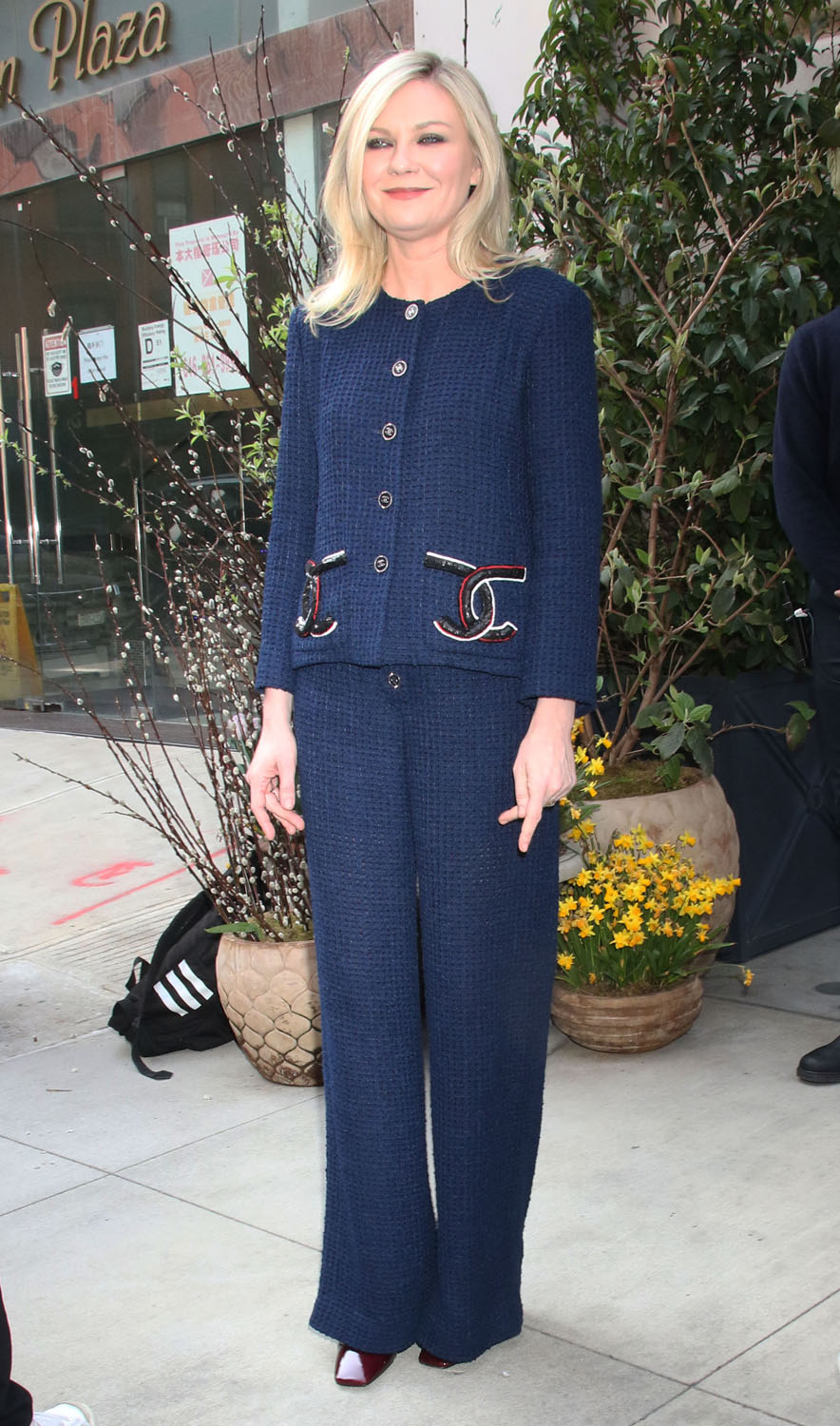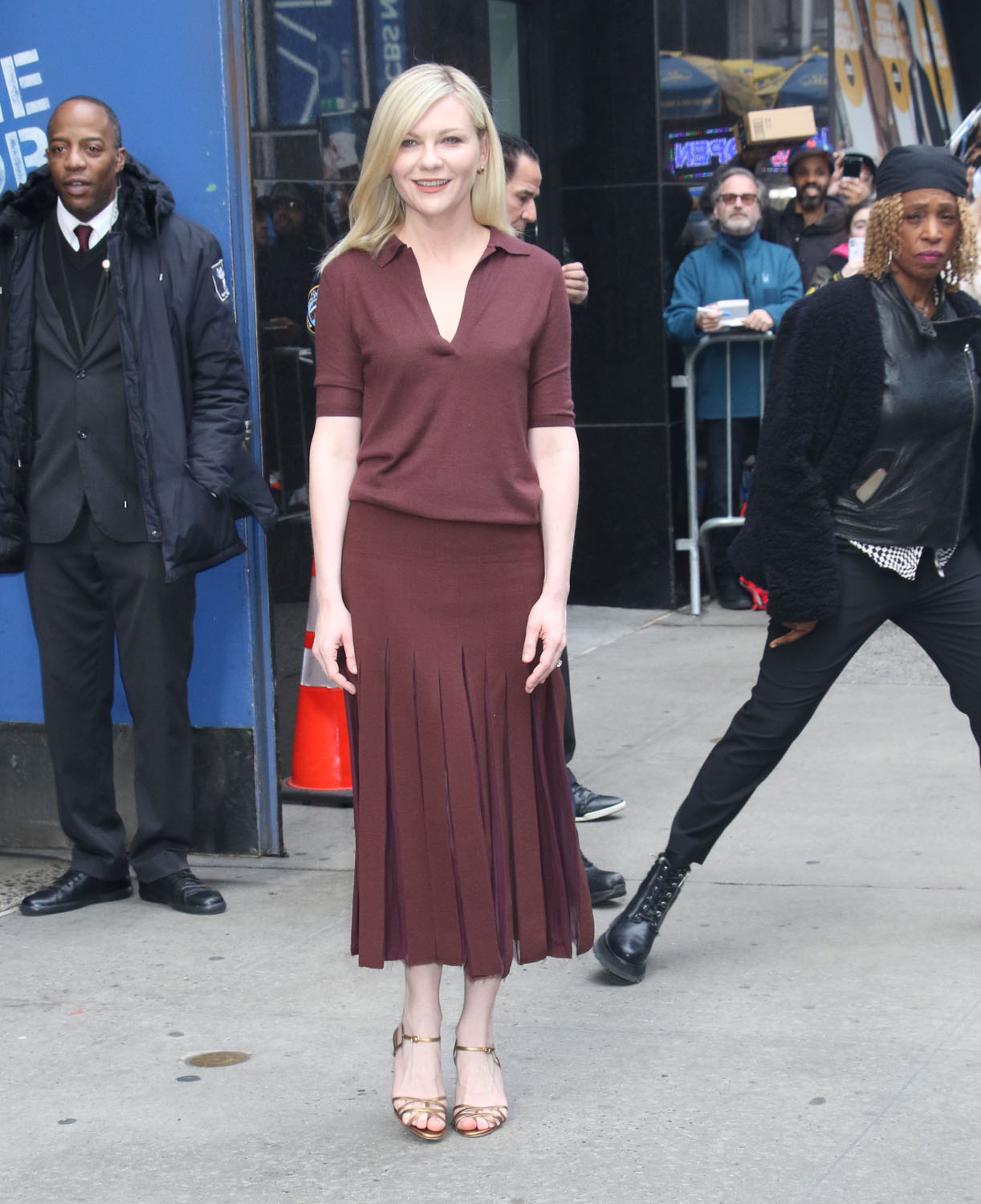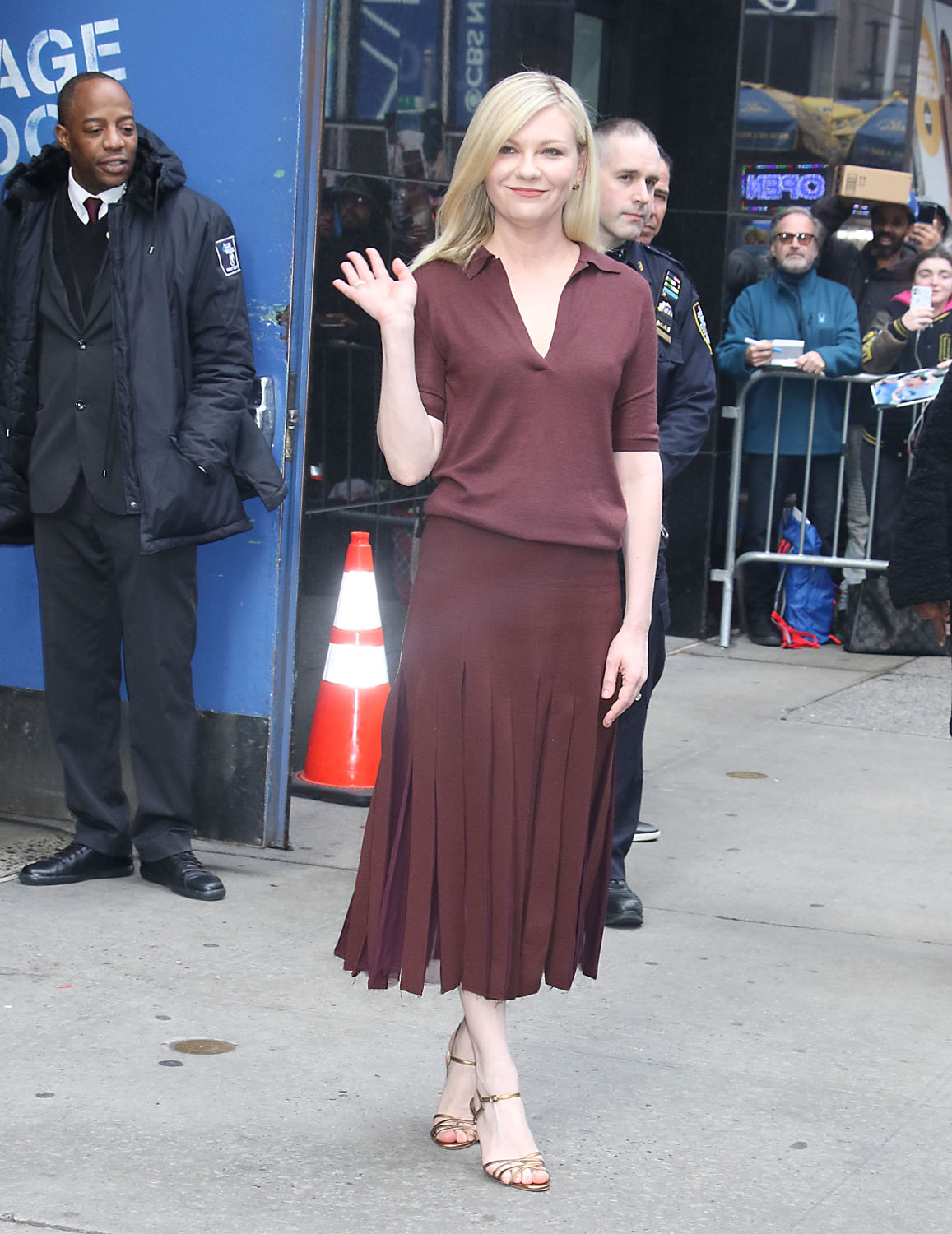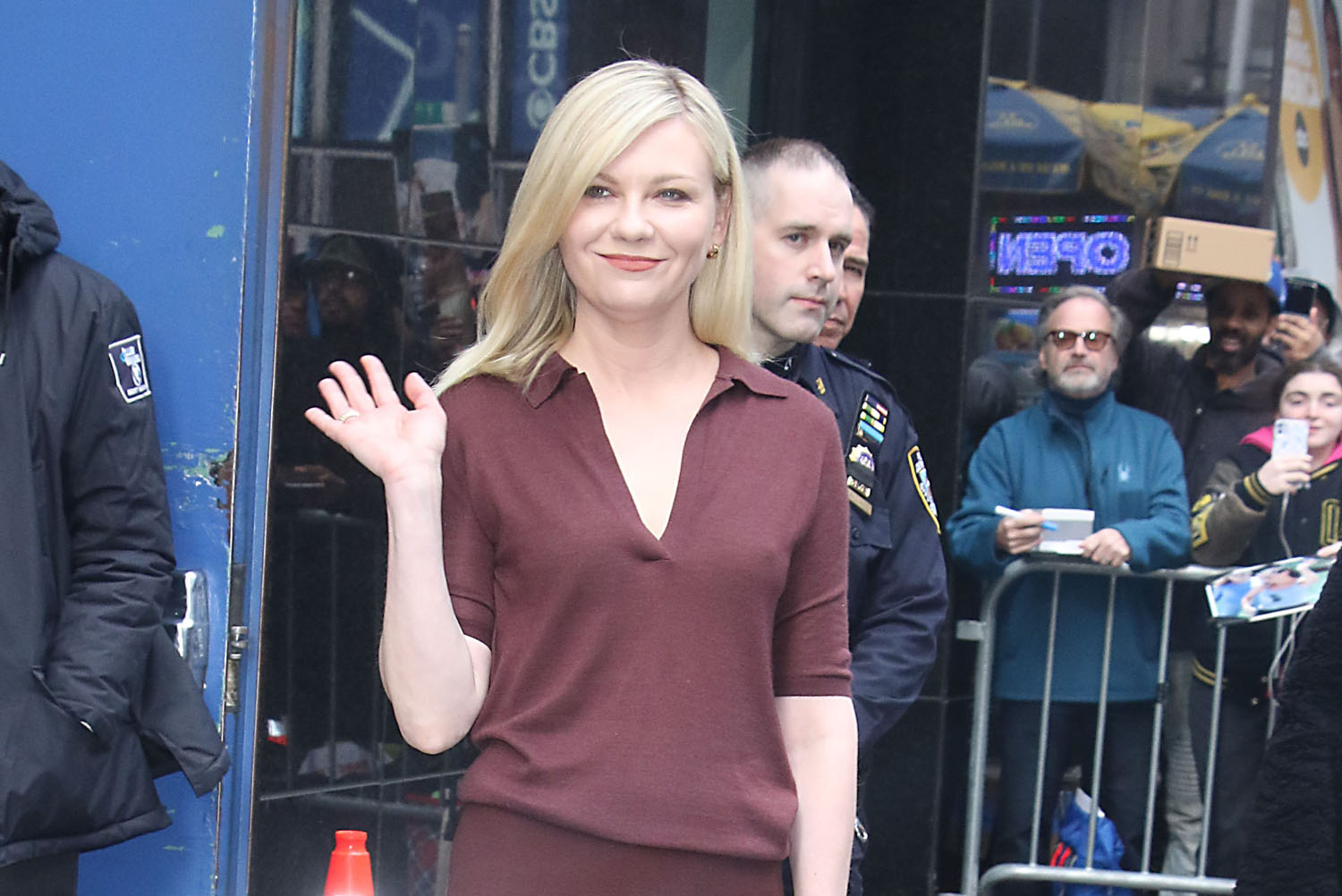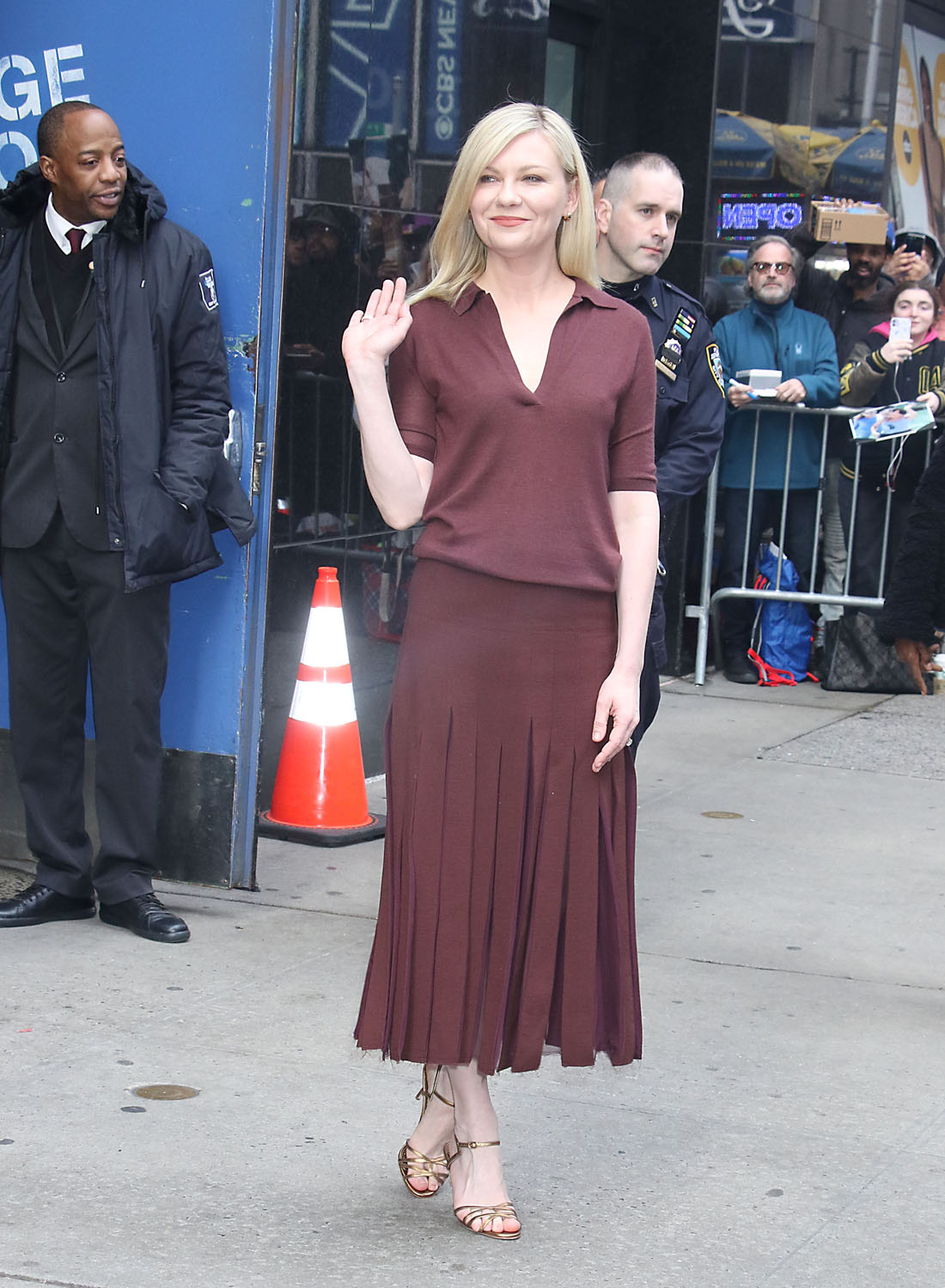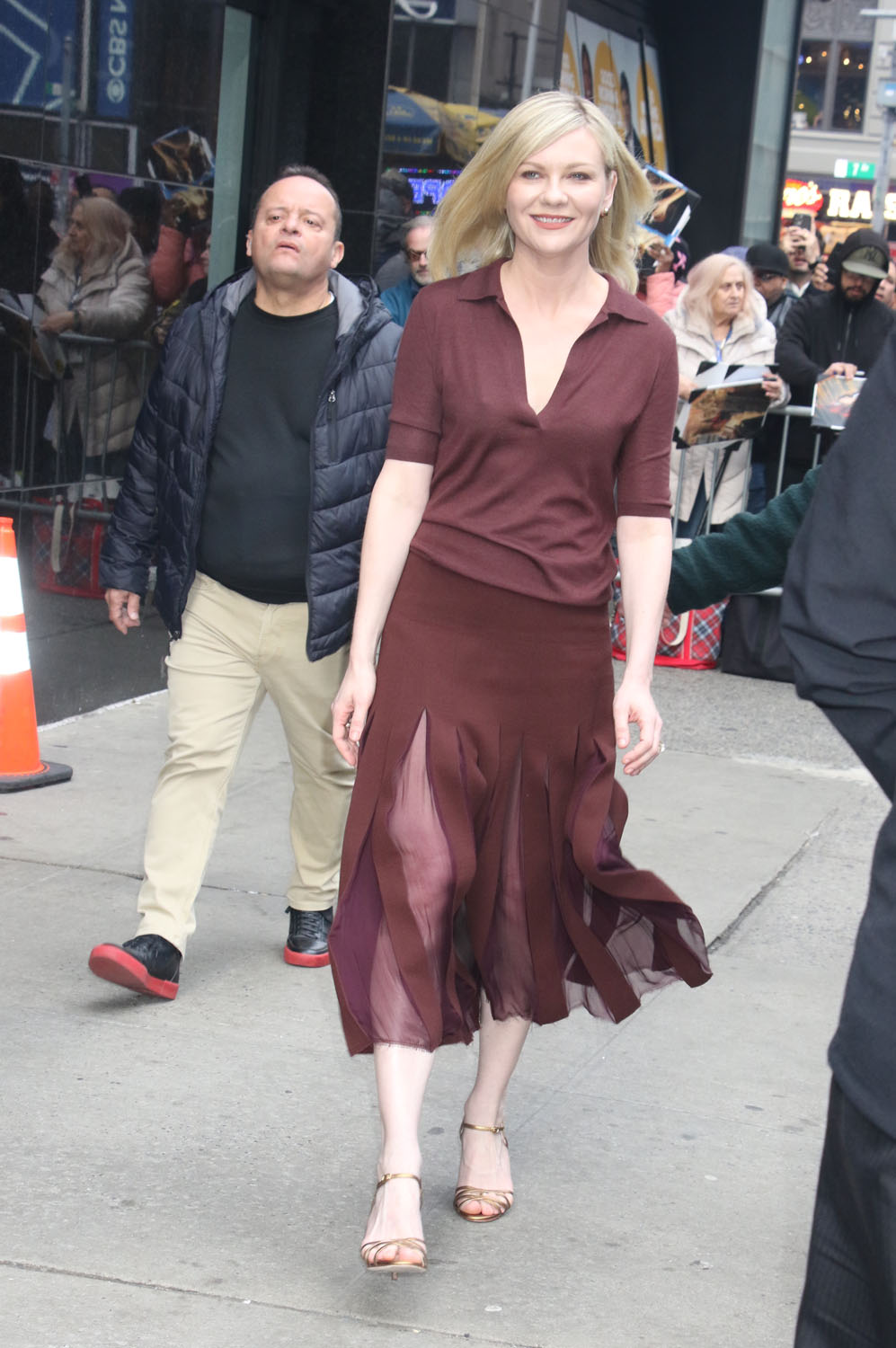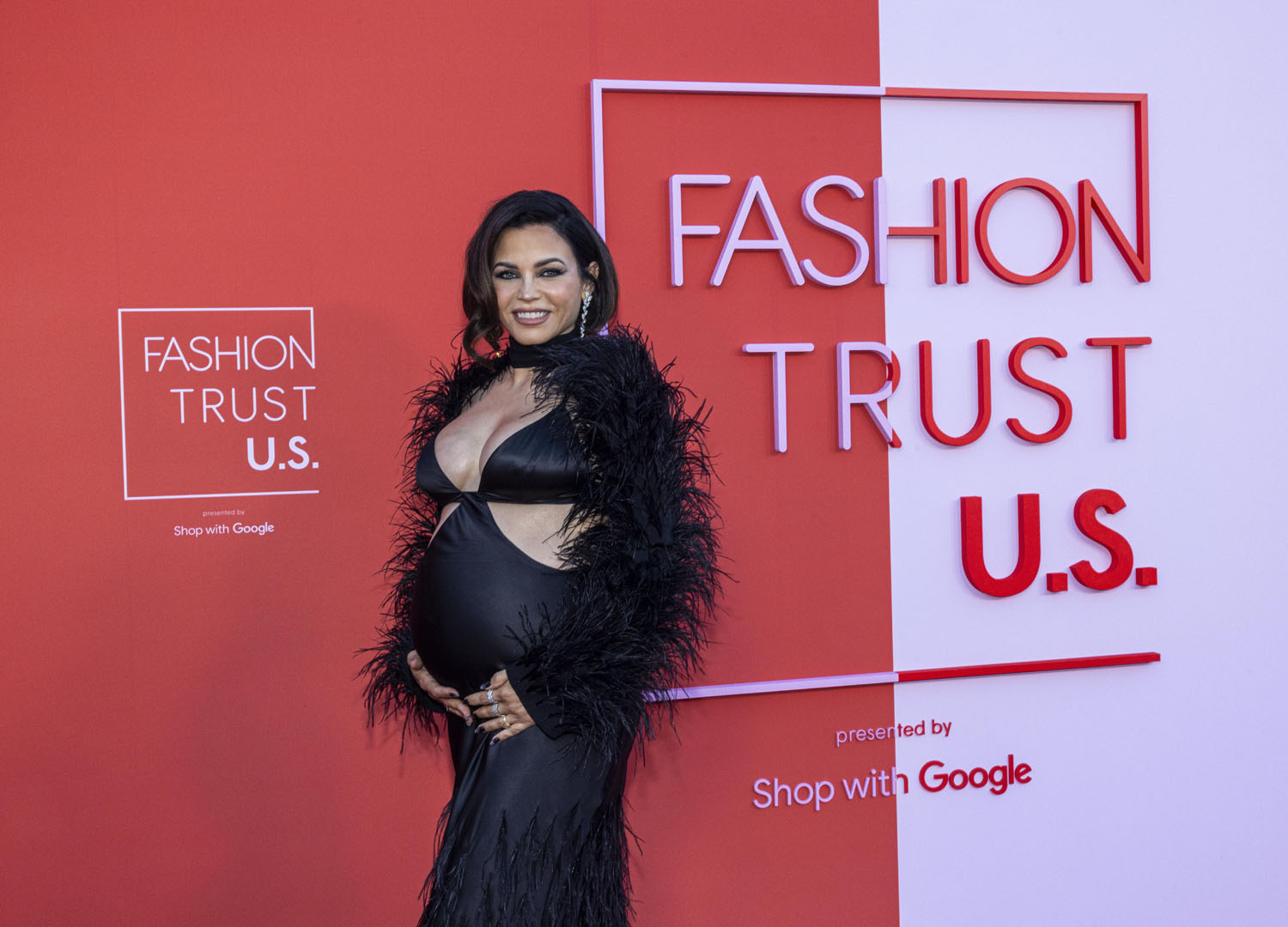Kirsten Dunst in Civil War


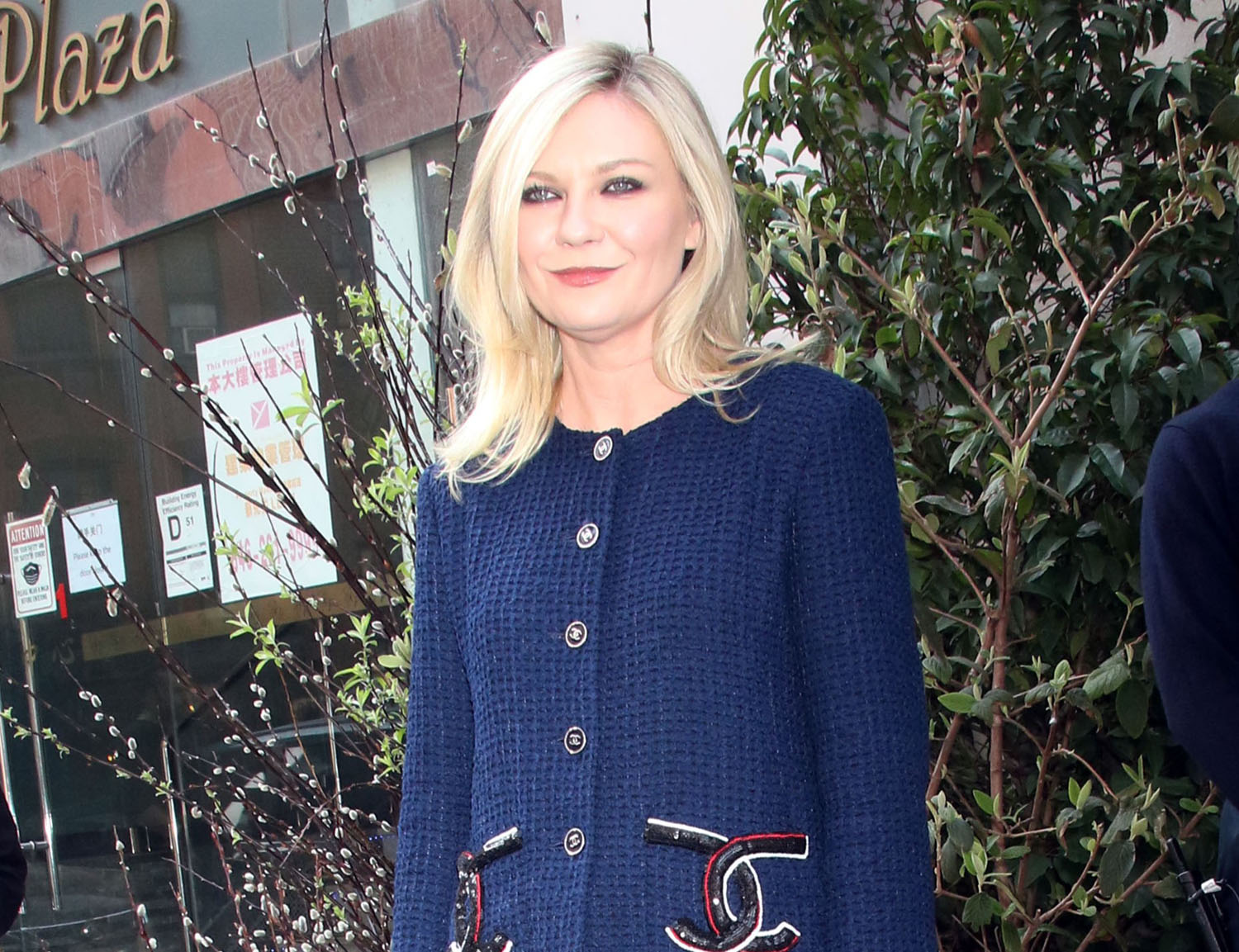
Alex Garland breaks from tradition with his new film, Civil War. Leaving behind his detailed and haunting sci-fi landscapes, he throws his considerable talent for meticulously crafted worlds into a stark, grounded portrayal of a near-future America sundered by civil war.
California and Texas joined forces and seceded, Florida’s attempt at secession just failed, and the front line has reached Charlottesville, Virginia. Photojournalist Lee (Kirsten Dunst) and journalists Joel (Wagner Moura) and Sammy (Stephen McKinley Henderson) are on their way to Washington, DC, in hopes of interviewing the president before the “western forces” take the capital, thus ending the war and his presidency. Tagging along for the ride is aspiring photographer Jessie (Cailee Spaeny).
Garland, who writes and directs the film, is not subtle, so the relationship between Lee and Jessie is starkly drawn on either side of the hope coin. Lee is burnt out and burdened by her experiences as a war photographer, Jessie is still young enough to want to be a war photographer. She idolizes Lee, and an early exchange about whether or not take a photo of a dying colleague telegraphs the ending of the film, but Civil War isn’t about graceful writing—although Garland is incredibly economical in his scripting—it’s about the visuals and actual stomach-churning violence he commits to film.
Dunst is phenomenal as Lee, her face somehow heavy with all of Lee’s pain, her blue eyes uncharacteristically flat. Lee is drained of almost all color, to the point that trying on a pretty dress makes her unrecognizable to herself. But Jessie eventually sparks something in Lee, a determination to protect the younger photographer, if nothing else. Sammy reminds her they all “had to start somewhere”, and Lee slowly unclenches, taking the time to look over Jessie’s photographs and impart a little wisdom along the way.
But the real star of Civil War is, well, the war. The momentum constantly pushes forward as Lee and her companions move toward Washington, DC, with little vignettes taking place along the way. What Garland, a British filmmaker, reveals about America is at once keen and cock-eyed. For instance, the idea of California and Texas teaming up is laughable, but in one pit stop, Jessie and Lee find some local militia yahoos torturing former high school classmates for “looting”, which might just be their cover story for the doing of violence.
Indeed, in a later confrontation, the journalists stumble onto yet more local militia yahoos doing more violence, covering up a mass grave full of mostly brown bodies (pretty much all you need to know about the fault lines that led to the conflict). Jesse Plemons pops up for one terrifying scene as one such yahoo, he’s sickeningly effective as the kind of person just looking for a reason to be rid of “those people” who already bothered him by their mere presence. Garland sees an ugly rot at the heart of America, and the actual war is almost incidental to these instances of seemingly unaffiliated violence. It’s just people wanting to turn on their neighbors, war is just an excuse.
Some have criticized Civil War for not being political enough, but that’s missing the point of Garland’s film. The politics are incidental in part because the film is about the journalists who cover conflict, and they are, by necessity, impartial observers. But politics are also incidental because the case made by Civil War is that America is so far gone this kind of violence is inevitable, politics be damned. People just need an excuse, they don’t care what the excuse is. It’s incredibly bleak, but it also provides insight into Lee, because this is the exact kind of conflict she’s covered everywhere else in the world, why shouldn’t it be happening at home, too?
The final third of Civil War is devoted to the assault on DC and the White House. It is true, heart-pounding filmmaking, one of the best combat sequences put to film, up there with The Hurt Locker, Black Hawk Down, Gettysburg, and The Longest Day. The finale sequence literally made me sick to my stomach, it’s so visceral and tense. But it also wanders a bit from the earlier, more pointed elements of the film. The battle sequence is spectacular and memorable, but what it builds in active tension it loses in thematic tension. At that point, Civil War stops being about anything and just becomes about the immediate action, and whatever Garland was trying to say is lost.
Sure, all the early setups pay off, but ultimately Civil War is as cold as a photograph. It can turn your stomach, but it also becomes easy to look away from. The film doesn’t need to preach a political message, but absent a point all that horrible realism just becomes a firework show. As a piece of action cinema, Civil War is nearly flawless. But as a story, it falls short of its own early intentions, dropping the searing observations of a society willingly tearing itself apart for the sake of tribalism in exchange for a predictable climax. Yes, the combat scenes are stunning, but they’re in service of an ultimately shallow story. But Kirsten Dunst is so great she sells it anyway.
Civil War is now playing exclusively in theaters.

